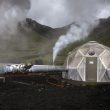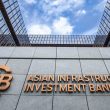Abu Dhabi Future Energy Company PJSC – Masdar has published its 2024 Green Finance Report, detailing the use of funds raised through its green bond issuances.
According to the report, more than US$1.685 billion from bonds issued in 2023 and 2024 had been allocated by the end of December to new solar, onshore and offshore wind, and energy storage projects. These include developments in the United Arab Emirates, Saudi Arabia, the United States, Germany and the United Kingdom, as well as in Uzbekistan, Azerbaijan and Serbia.
Masdar reported that for every US$1 million invested through its green bonds, around 3,700 tonnes of carbon dioxide emissions are avoided annually. The total avoided emissions attributed to the bonds now amount to more than 6.28 million tonnes of CO₂ per year.
Mazin Khan, Chief Financial Officer at Masdar, said: “Masdar’s green finance strategy is underpinned by disciplined capital allocation, robust ESG integration and transparent reporting. We are proud to deploy bond proceeds towards greenfield projects under strict criteria, enabling clean energy progress while maintaining a high level of financial efficiency and investor confidence.”
Earlier this year, Masdar revised its Green Finance Framework to extend eligibility to projects such as green hydrogen and stand-alone battery energy storage systems. Following this revision, Moody’s Investor Services reaffirmed Masdar’s Sustainability Quality score of SQS1 (Excellent), confirming alignment with international standards including the ICMA Green Bond Principles and the Green Loan Principles.
In May 2025, Masdar issued a US$1 billion green bond which was 6.6 times oversubscribed, with 85 per cent allocated to international investors and 15 per cent to investors in the Middle East and North Africa. The company has now raised US$2.75 billion since launching its green bond programme in 2023.
The report also highlighted that Masdar secured US$6 billion in non-recourse financing in 2024 to develop 11GW of clean energy capacity across 12 projects in nine countries. Ernst & Young provided a limited assurance review of the allocation of proceeds and selected environmental metrics in the report.





















